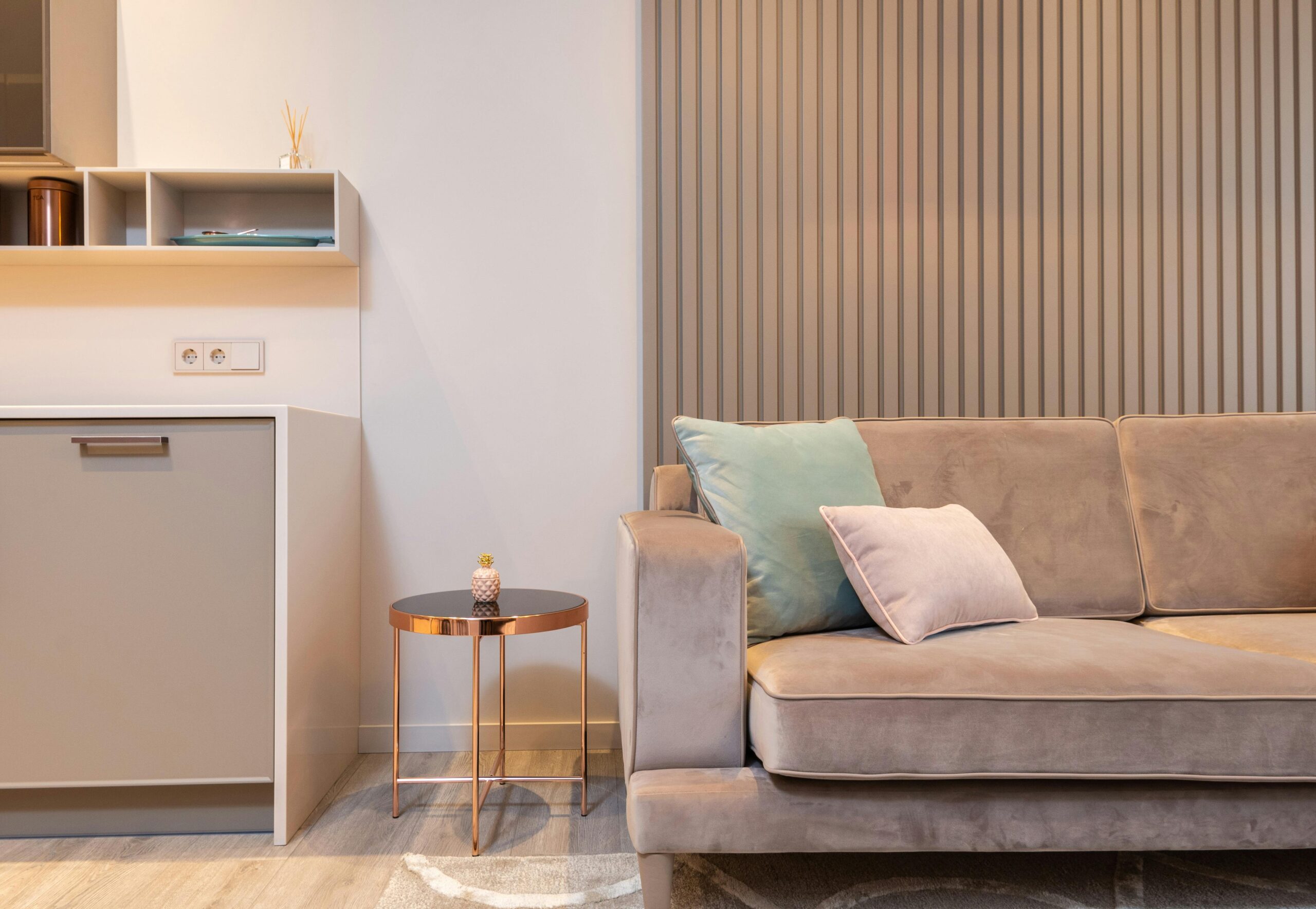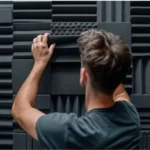- Mon - Sat 8:00 - 6:30, Sunday - CLOSED
- support@soundproofhub.com
How to Soundproof a Room: Cheapest Way

How to Soundproof a Room: Cheapest Way
Soundproofing a room can significantly improve the quality of your living or working space by reducing noise pollution. Whether you’re creating a home office, a recording studio, or simply want a quieter bedroom, this guide will help you understand the most cost-effective ways to soundproof a room.
We’ll cover essential materials, methods, and DIY projects to help you achieve optimal sound insulation without breaking the bank.
Understanding Soundproofing
What is Soundproofing?
Soundproofing is the process of reducing or eliminating sound transmission from one area to another. This can involve blocking noise from entering a room, containing sound within a room, or both.
Effective soundproofing combines materials and construction techniques to create barriers against sound waves.
Why Soundproof a Room?
Privacy: Ensures conversations and activities remain confidential.
Focus: Creates a distraction-free environment for work or study.
Comfort: Enhances living spaces by reducing external noise.
Acoustics: Improves sound quality for recording or listening to music.
Materials and Tools Needed
To start your soundproofing project, gather the following materials and tools:
– Weather stripping
– Acoustic caulk
– Soundproof curtains or blankets
– Acoustic panels
– Carpets and rugs
– Bookshelves and heavy furniture
– Tools: Screwdriver, hammer, measuring tape, utility knife
Methods for Soundproofing a Room
Sealing Gaps and Cracks
Weather stripping and Acoustic Caulk: Use weather stripping around doors and windows to seal gaps. Apply acoustic caulk to cracks and seams to prevent sound from leaking through.
Using Soundproof Curtains and Blankets
Soundproof Curtains: Heavy, thick curtains can block external noise. These are especially useful for windows.
Soundproof Blankets: Hang these blankets on walls or over doors to absorb sound and reduce noise transmission.
Installing Acoustic Panels
Acoustic Panels: Install acoustic panels on walls and ceilings to absorb sound. These panels are available in various sizes and colors, making them a versatile option for improving room acoustics.
Adding Carpets and Rugs
Carpets and Rugs: Place thick carpets or rugs on floors to reduce sound reflection and absorb noise.

Utilizing Bookshelves and Furniture
Bookshelves: Position bookshelves filled with books against walls to act as sound barriers. The mass of the books helps block and absorb sound.
DIY Soundproofing Projects
Building a Soundproof Door
1. Add Mass: Attach a solid core door or add mass to an existing door using mass-loaded vinyl (MLV).
2. Seal the Edges: Use weather stripping and a door sweep to seal gaps around the door.
Creating a Soundproof Window Insert
1. Measure and Cut: Measure your window frame and cut a piece of acoustic foam or MLV to fit.
2. Install: Insert the material into the window frame to block sound.
Cost-Effective Tips and Tricks
Double Up: Use double layers of soundproofing materials for better results.
Rearrange: Move furniture to block sound paths and absorb noise.
DIY Panels: Make your own acoustic panels using inexpensive materials like foam and fabric.
Where to Buy Soundproofing Materials
For affordable soundproofing materials, visit Acoustic Panels.co.uk. They offer a wide range of products suitable for various soundproofing needs.
Maximizing Your Soundproofing Efforts
Soundproofing doesn’t have to be expensive. By utilizing the methods and materials outlined in this guide, you can effectively reduce noise and create a more comfortable and private space. Experiment with different techniques and find what works best for your specific needs.
FAQ
Q: How effective are soundproof curtains?
A: Soundproof curtains can significantly reduce noise, especially for windows. They are a cost-effective and easy-to-install solution. Sound deadening for room is a question.
Q: Can I soundproof a room on a tight budget?
A: Yes, there are many affordable soundproofing methods, such as using rugs, room sound-deadening panels, weather stripping, sound rooms, and rearranging furniture to block and absorb noise.
Q: Do I need professional help to soundproof a room?
A: Not necessarily. Many soundproofing techniques can be done as DIY projects. However, for more complex issues, professional advice might be helpful. Room sound insulation is easy.
Q: What is the best material for soundproofing walls?
A: Acoustic panels, mass-loaded vinyl, and heavy curtains are some of the best materials for soundproofing walls.
Q: How long does it take to soundproof a room?
A: The time required depends on the size of the room and the methods used. Simple DIY projects can be completed in a few hours, while more extensive soundproofing might take a few days.
By following these tips and utilizing cost-effective solutions, the best way to soundproof a wall from noisy neighbors, you can achieve a quieter, and more peaceful environment in your home or workspace.




Muhammad Zeeshan
Muhammad Zeeshan is an SEO expert and content writer, specializing in link building (SaaS, Tech, Business, and Home Improvements). I am very passionate about search engine optimization, backlink building, and guest blogging. I can help you in attracting a new audience and in achieving a higher rating.